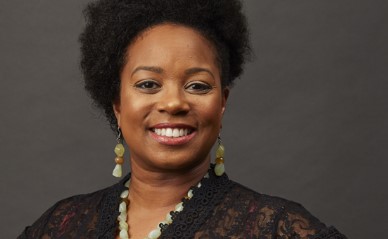In my roles preparing professionals for careers in diverse healthcare environments, I’ve witnessed the drive to prove one's humanity from the perspective of the provider, patient, family, and community. Everyone in the medical field takes an oath to do no harm—yet reality continues to show that the medical community’s commitment to equity wavers in the face of the work required.
Those of us who have worked in the equity realm for many years have seen a pattern repeat itself. After transformative forward movements, communities suffer reprisals; when organizations commit to diversity and inclusion, they experience support among advocates, but also increased bullying in the forms of micro- and macro-aggressions and skepticism about implementation and sustainability.
Perhaps what most hinders equity is a culture lacking in trauma stewardship, as defined by Laura van Dernoot Lispky. Most people navigate life’s adversities without tools that can sustain continuous use; healthcare professionals are uniquely positioned to assist with this. Until our culture is bolstered by trauma-transformed practices, the medical field will remain ambivalent around health equity.
I believe it is imperative for us to be transparent about our equity efforts, and to incorporate buy-in from the community in our plans. Leaders must know their patients and innovate ways to reach those who cannot access care, hire staff who impact community health, and empower employees with forms of accountability that make a difference across a variety of patient circumstances.
Culturally competent organizations share the decision-making at all stages of their equity work—a crucial factor in modeling how the organization incorporates the needs of all of its constituents into its vision. Such organizations see increased diversity of personnel, patients, and community partners alongside reassuring rises in recruitment and retention. And they gain trust among stakeholders while bolstering creativity, innovation, and brand recognition.
I recommend that leaders become immersed in their communities by attending events, workshops, and more. I once led information sessions at libraries—my most successful recruitment events—by modeling positive stewardship. And if you host special events for an admission fee that benefits your community, consider gifting attendance to demonstrate commitment and accountability.
In the words of Howard Thurman, “Don’t ask yourself what the world needs. Ask yourself what makes you come alive, and go do that, because what the world needs is people who have come alive.” My hope for my colleagues in the medical community is that we’ll step up to what we have always felt called to do: expand our idea of care by affirming and validating the humanity of those who need us. Those of us who are privileged to care for others are in a position to make the biggest impact—the greater community needs us to lead the way.

Ché Abram
Chief of Diversity, Equity, Inclusion, and Belonging
School of Public Health, University of California, Berkeley